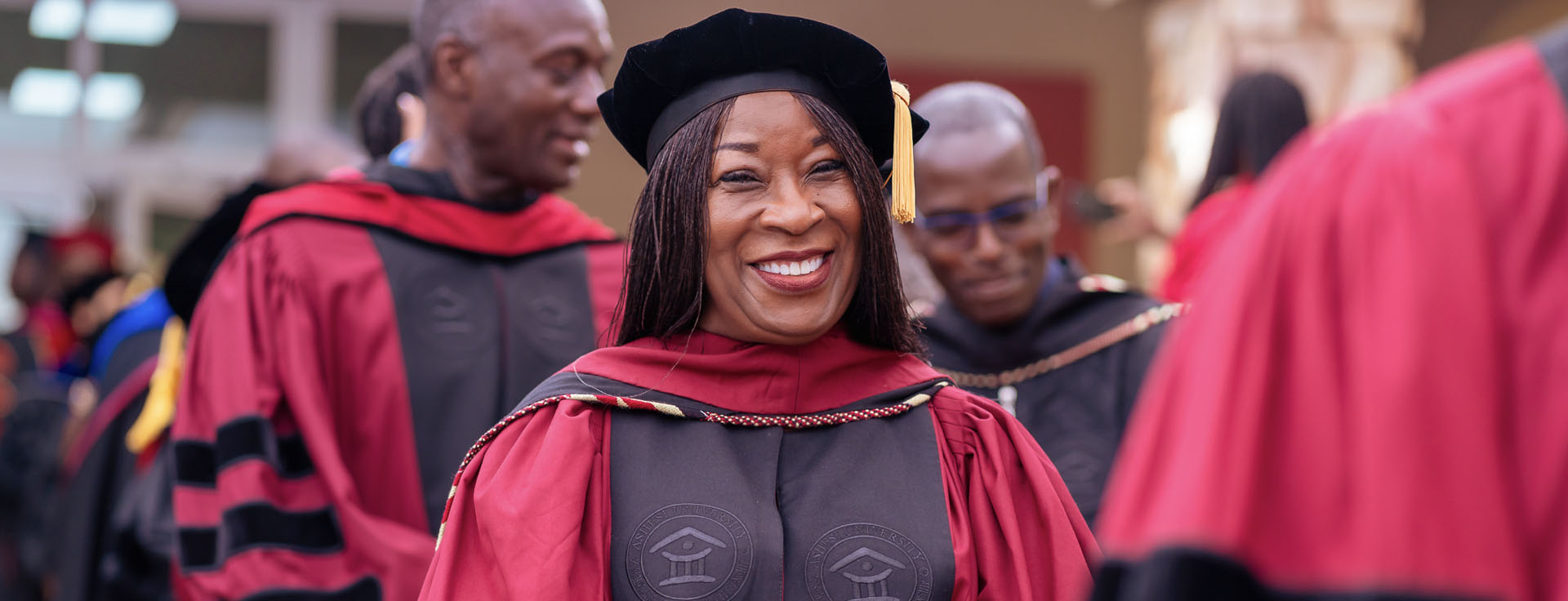Hello Class of 2023,
Congratulations!
Where did time go? It seems like it was just yesterday at your matriculation when I asked you to ask yourself: why am I here? What will I make of this experience and opportunity, intellectually, morally, and socially? What will I contribute to and take from this academic community? And ended it by saying …The next time we assemble together like this, it will be for your graduation or commencement. Remember?
Galloway sums up what I am feeling well, He says, “this morning I kissed my son goodbye before his first day of kindergarten. This afternoon he came home from fifth grade.” What we experience is change, not time.
Chantelle and George, you were in my Ashesi success class first year, now you are an engineer and a computer scientist.
Elijah and Justin, I didn’t know you when you were in first year, but in your senior year, three to four years later you were giving me valuable support, thank you.
Nancy and Eunice your engineering drive make me look forward to the future.
Elvira, Je suis si heureux d'avoir fait ta connaissance, well done in thriving in our English-Ghanaian culture.
Time flies.
“Time is the scarcest resource. Of the other [3] major resources, money is actually quite plentiful. People—the third limiting resource—one can hire, though one can rarely hire enough good people. But one cannot rent, hire, buy, or otherwise obtain more time. The supply of time is totally inelastic. No matter how high the demand, the supply will not go up. There is no price for it and no marginal utility curve for it. Moreover, time is totally perishable and cannot be stored. Yesterday’s time is gone forever and will never come back. Time is, therefore, always in exceedingly short supply. Time is totally irreplaceable.
Within limits we can substitute one resource for another, copper for aluminum, for instance. We can substitute capital for human labor. We can use more knowledge or more brawn. But there is no substitute for time. Everything requires time. [Everything] takes place in time and uses up time. It is the one truly universal condition. Yet most people take for granted this unique, irreplaceable, and necessary resource. Nothing else, perhaps, distinguishes effective [persons] as much as their tender loving care of time. As psychological experiments have shown, man is ill-equipped to manage his time. In one study, People kept in a room in which they cannot see light and darkness outside rapidly lose all sense of time. Even in total darkness, most people retain their sense of space, but not time."
What I just read is an excerpt from Peter Drucker’s book the effective executive. Why did I read this to you on the day of your graduation? I’m not sure, I lie I have many reasons, but I will let you decide why.
To be honest, I did consider other topics like
- Intergenerational experiences: The land you inherit from your ancestors is for you to keep for your children.
- Traditional knowledges: Taboos on fishing, ensure climate safe practices, and
- Or The increasing rate of change: how the entire year’s news in the 1860’s is today the equivalent of one day’s news in the newspapers
Note how they all have to do with time. One thing is for certain, as I looked over your names on the list of students graduating, I was certain you had made good use of your time. Well done. Peter Drucker wrote this in 1967. He made no mention of time’s ability to stop or accelerate, as we saw it do when a virus one four-hundredth the width of a human hair grabbed our sphere which weighs 13 billion trillion tons and set it spinning ten times faster, while everything including time was standing still. Apparently, not only is time change, but time also changes.
In sum, I have a new respect for time, and the point of this conversation is that you do too. Respect time. Or should I say: continue to respect time.
Class of 2023, Congratulations!


